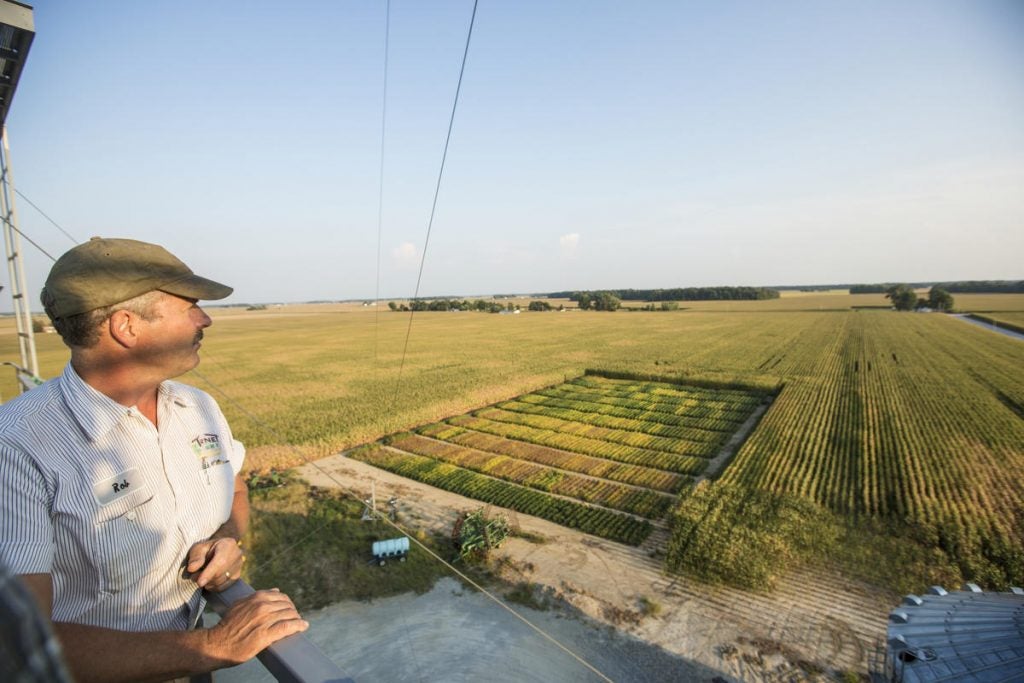More than forty senators have co-sponsored the reintroduced Growing Climate Solutions Act — the first major piece of bipartisan legislation to help ensure that farmers, ranchers and foresters benefit from being part of the climate solution.
The bill has a real chance of becoming law this year — a sign of hope for collaboration on climate on Capitol Hill. It advanced unanimously out of the Senate Agriculture Committee and has growing bipartisan support in the House of Representatives.
Here are three ways this bill advances agricultural climate solutions, with benefits that extend far beyond the farm.
1. Helping agriculture do double duty for climate resilience.
Agriculture contributes about 10% of total U.S. greenhouse gas emissions — a footprint that includes nitrous oxide emissions from excess fertilizer and methane from livestock manure and enteric emissions.
At the same time, agriculture is on the frontlines of climate impacts like variable weather, new pest pressures and shifting growing seasons that are already making production more difficult.
Cutting the sector’s direct emissions and sequestering measurable amounts of carbon will be critical to avoid more severe warming scenarios. Many practices that cut emissions or store carbon also do double duty by building climate resilience through healthier soil, reduced flood risk, cleaner water and more.
Members of both political parties and a growing coalition of farmers, environmental advocates and companies see enormous opportunity for policies like the Growing Climate Solutions Act to incentivize agricultural climate solutions and reward farmers for adopting climate-smart practices.
Farmers are ready and willing to be part of the climate solution. Congress must move quickly to pass this bill. Share on X2. Expanding access to credible carbon markets.
A host of markets have sprung up to pay farmers for their climate contributions. These markets present big opportunities for farmers to generate extra revenue, but they can also be difficult or overwhelming for farmers looking to participate.
The Growing Climate Solutions Act will pave the way for more farmers to participate in markets in three ways.
First, it would direct the U.S. Department of Agriculture to identify and highlight which practices reduce net greenhouse gas emissions or sequester carbon, and how farmers should measure outcomes against a baseline.
Second, the bill would direct USDA to create a certification process for third-party experts to help farmers verify the credits they generate. This will take some of the verification burdens off of farmers’ shoulders.
Third, the bill creates a farmer advisory board to work with USDA to help ensure that carbon markets deliver financial value to farmers — not just buyers and intermediaries.
USDA must stand ready to make sure the financial and environmental benefits of carbon markets are equitably distributed to Black farmers and farmers of color, farmers who rent their land and farmers who run small-scale operations, all of whom can face barriers to participating in such markets.

3. A model for bipartisan action on climate.
As House and Senate leaders plan a path toward final passage of this important legislation, it’s worth noting that this bipartisan approach to bill writing is setting a model for cooperation and productivity in Congress. Our country needs this type of collaboration and thoughtfulness moving forward if we are to solve these incredibly challenging issues.
Leaders who take their time, listen to stakeholders and each other, and work to solve problems will have more success advancing durable climate solutions that work for American industries and the American people.









